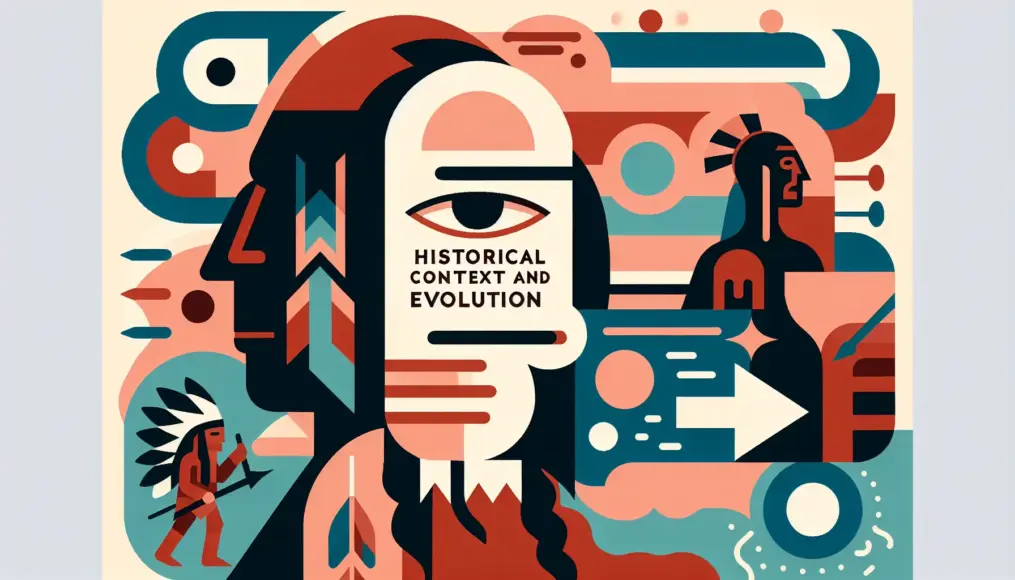Immigration policy is a crucial element in shaping the future of any nation. As countries around the globe, including Japan, continue to develop policies welcoming immigrants, it’s essential to consider the backgrounds and impacts of these decisions. A look back at history reveals that immigration policy has evolved over time, bringing with it a host of social and economic implications.
In this article, we’ll delve into the historical aspects of immigration policy, examine the current situation, and discuss the challenges that lie ahead. By gaining insight into how immigration influences our society, we can discover clues for building better policies.
- Explore the historical background and evolution of immigration policy
- Compare current immigration acceptance situations in Japan and major countries
- Consider the economic benefits and social challenges brought about by immigration
Chapter 1: The Historical Context of Immigration Policy
Immigration policy is a crucial topic that deeply influences a nation’s development. Understanding the history of immigration policy in Japan is essential for grasping the current situation and envisioning future prospects. In this chapter, we will explore how immigration policy originated, how it has evolved over time, and the significant historical events that have shaped it. Through this examination, we will also consider the impact of immigration on society and the potential directions for future policy.
The Origins and Evolution of Immigration Policy
The roots of immigration policy emerged in response to international economic and social changes. In Japan, immigration policy began with the opening of the country during the Meiji era. At that time, Japan aimed to provide labor to overseas markets, leading many people to embark on journeys in search of new opportunities. This not only elevated Japan’s international standing but also contributed to economic growth.
However, as time progressed, perspectives on immigration shifted. During the post-war reconstruction period, there was a push to welcome foreign workers to address labor shortages. Yet, as economic growth stabilized, immigration policies became stricter, leading to a noticeable decline in the acceptance of immigrants. Reflecting on this history provides valuable insights into the future direction of immigration policy.
- Japan’s immigration policy began in the Meiji era.
- Immigration policies have evolved over time.
- Attitudes towards immigration have changed alongside economic growth.
Significant Historical Events
Several key historical events have significantly impacted immigration policy. For example, post-war Japan aimed to alleviate labor shortages by accepting a large number of foreign workers. While immigrants greatly contributed to Japan’s economic development during this time, it also led to instances of cultural friction.
In the 1990s, as globalization accelerated, calls for a reevaluation of immigration policies grew stronger. Notably, the establishment of the “residency status” system clarified the process for accepting foreigners. This change enabled immigration policy to offer a wider variety of options, paving the way for the current system in place.

If you want to gain a deeper understanding of the impact of immigration policy, we recommend reading the article “What is the Immigration Issue? Challenges and Possibilities in Modern Society.” This article delves into the challenges faced by immigrants and their social impacts, while also exploring potential solutions to immigration issues.
- The acceptance of foreign workers post-war contributed to economic development.
- There were periods marked by cultural friction.
- Immigration policy was reexamined in response to globalization in the 1990s.
Chapter 2: The Current State of Immigration Policy
Contemporary immigration policies are significantly influenced by global movements and economic conditions. In Japan, the urgency to accept immigrants has grown, particularly in the context of an aging population and declining birth rates. This chapter will delve into the current state of immigration in Japan, comparing it with policies in other major countries to better understand where our policies stand. By doing so, we aim to deepen our understanding of the future direction of immigration policy.
The State of Immigration Acceptance in Japan
In recent years, Japan has gradually opened its doors to immigrants. To address labor shortages, systems such as the Technical Intern Training Program and the Specified Skilled Worker Program have been implemented, providing many foreign workers with opportunities to work in Japan. As a result, we are witnessing immigrants thriving across various sectors.
However, the acceptance of immigrants does come with challenges. Cultural differences and language barriers can lead to friction between immigrants and Japanese citizens. Therefore, there is a growing need for improving the support systems in place to help immigrants integrate smoothly into Japanese society.
- Japan has implemented the Technical Intern Training Program and the Specified Skilled Worker Program.
- Opportunities for foreign workers in diverse industries are increasing.
- Cultural and linguistic differences pose challenges.
A Comparison with Immigration Policies in Major Countries
Immigration policies vary significantly from country to country. For instance, the United States and Canada actively welcome immigrants, fostering diverse societies. Canada, in particular, views immigration as a critical component of its growth strategy, promoting policies that leverage immigrants to stimulate economic vitality.
In contrast, Japan tends to be more cautious in its approach to immigration. Compared to other nations with more progressive immigration policies, there is still considerable room for improvement. However, given the evolving domestic and international landscape, it’s essential to keep an eye on how Japan’s policies may shift in the future.
- The United States and Canada actively welcome immigrants.
- Canada considers immigration a strategy for economic growth.
- Japan’s immigration policies are more cautious compared to other countries.
Chapter 3: The Social and Economic Impact of Immigration
The effects of immigration on society and the economy are diverse and multifaceted. Among these, the economic advantages are particularly noteworthy. The various skills and perspectives that immigrants bring can invigorate the economy and create new business and job opportunities. However, welcoming immigrants also comes with social challenges. In this chapter, we’ll explore the economic benefits of immigration while also considering the social issues it raises and looking for potential solutions.
Economic Benefits Brought by Immigrants
One of the primary economic benefits of immigration is the replenishment of the workforce. This is especially critical in countries like Japan, where the population is aging and birth rates are declining. Immigrants can serve as a new labor force, contributing to the maintenance and growth of various industries. Additionally, the fresh perspectives and ideas that immigrants offer can foster innovation and lead to the creation of new businesses.
Moreover, immigrants contribute to the economy as consumers. By opening up new markets, they can stimulate local economies. When immigrants settle in a community, they can provide new energy to local industries and elevate the economy as a whole.
- Immigrants supplement the workforce and support industries
- New perspectives and ideas invigorate businesses
- Immigrants contribute to the revitalization of local economies
Social Challenges and Their Solutions
On the flip side, the acceptance of immigrants also presents social challenges. Cultural and language differences can lead to friction between immigrants and local residents. There are also instances where support for immigrants to integrate into the community is lacking. Such situations can potentially lead to social divisions.
To address these challenges, it is crucial to create opportunities for interaction between immigrants and local residents. Strengthening support for immigrants to adapt to Japanese society is also necessary. Providing educational and language learning opportunities can help create an environment where immigrants feel secure in their lives, which is essential for promoting harmony within the broader society.
- Friction can arise from cultural and language differences
- There may be a lack of support for community integration
- Establishing spaces for interaction and providing educational opportunities can help resolve these issues
Chapter 4: A Philosophical Perspective on Immigration Policy
When considering immigration policy, it is essential to look beyond just the economic and social aspects; a philosophical perspective is equally important. Human dignity and ethical values significantly influence the formation of policies regarding the acceptance of immigrants. In this chapter, we will explore the concept of human dignity in relation to immigration and consider ethical proposals for policy development. Let’s think together about how to create a society that respects immigrants as human beings.
Human Dignity and Immigration
To deepen our understanding of immigration, it’s crucial to reflect on the concept of “human dignity.” Immigrants often become targets of prejudice and misunderstanding due to differences in nationality and culture, yet they possess the same inherent dignity as everyone else. A society that welcomes immigrants must respect this diversity and acknowledge the value of each individual.
Moreover, as immigrants navigate their new environments, they face numerous challenges and hardships that require understanding and support. Protecting human dignity means creating an environment where they can live safely and comfortably. Such efforts contribute to the overall maturity of the society that accepts them.
- Immigrants possess the same human dignity as anyone else.
- A society that respects diversity is essential.
- Creating a safe living environment is crucial.
Ethical Policy Proposals
In advancing immigration policy, an ethical perspective is vital. Accepting immigrants is not just an economic choice; it directly impacts the values and ethics of society as a whole. For instance, considerations regarding the work environment and treatment of immigrants must be approached from an ethical standpoint.
Additionally, enhancing education and support programs is part of our ethical responsibility. Providing assistance for immigrants to successfully integrate into their new society is essential for safeguarding their dignity as human beings. By implementing these proposals, we can develop better immigration policies that enrich society as a whole.
- Immigration policy is not only an economic choice but also an ethical one.
- Consideration for the work environment and treatment of immigrants is necessary.
- Strengthening education and support programs is needed.
Conclusion
In this article, we explored the historical background of immigration policy, the current state of acceptance, the social and economic impacts of immigration, and even philosophical perspectives on the topic. Immigration policy is not just an economic issue; it is deeply intertwined with ethics and human dignity within our society. As Japan moves towards a future where the acceptance of immigrants is increasingly necessary, it’s vital to respect the diverse values and viewpoints that they bring, and to work towards creating a society that fosters coexistence.
We also highlighted some of the challenges that come with advancing immigration policy. Initiatives to reduce friction arising from cultural and linguistic differences, along with ethical policy recommendations, are essential. This way, we can create an environment where immigrants feel secure and supported, ultimately enriching society as a whole.
- Immigration policy plays a crucial role in economic and social development.
- Support is needed to uphold the dignity of immigrants.
- Efforts must be made to alleviate cultural friction.
By deepening our understanding of immigration, each of us can take the first step towards building a better society. We would love to hear your thoughts and opinions in the comments!



Comment